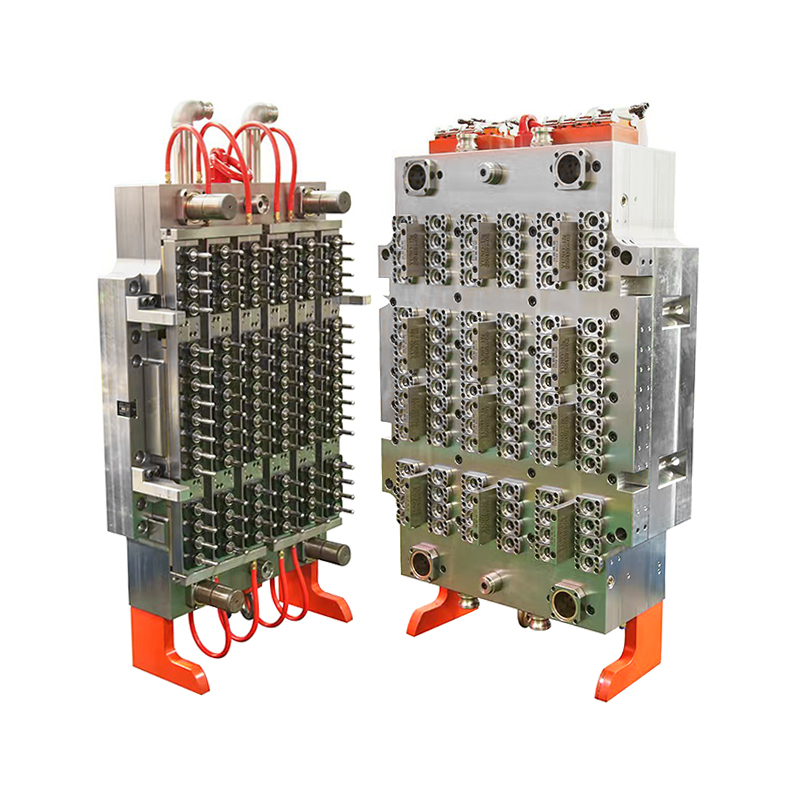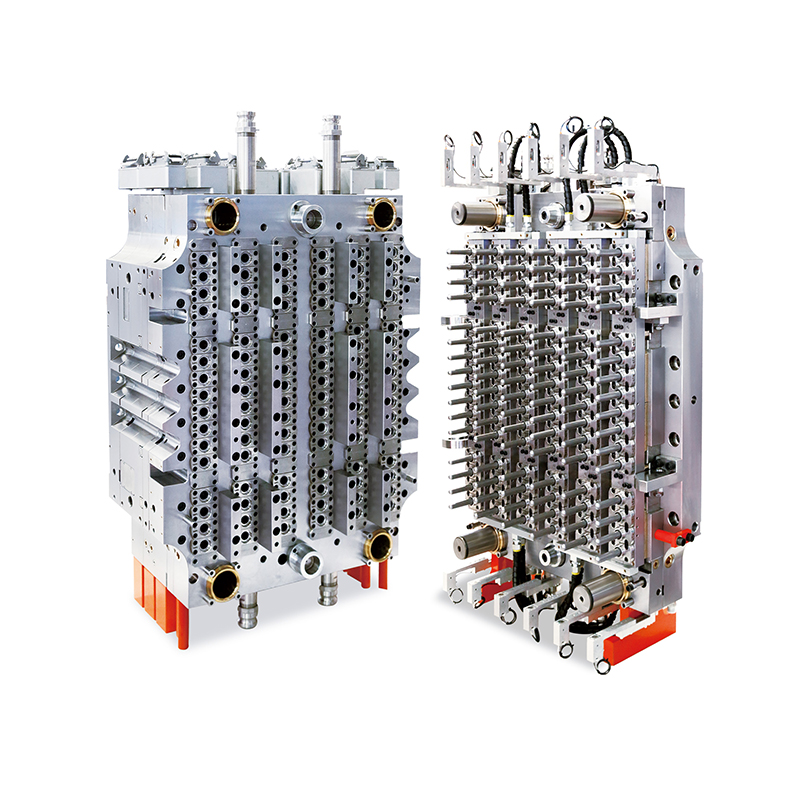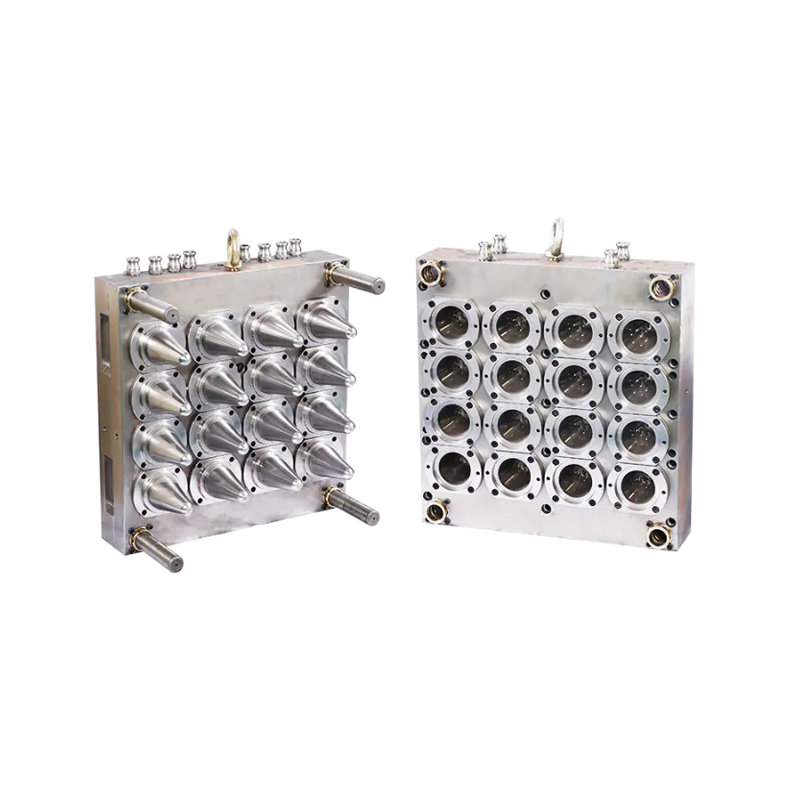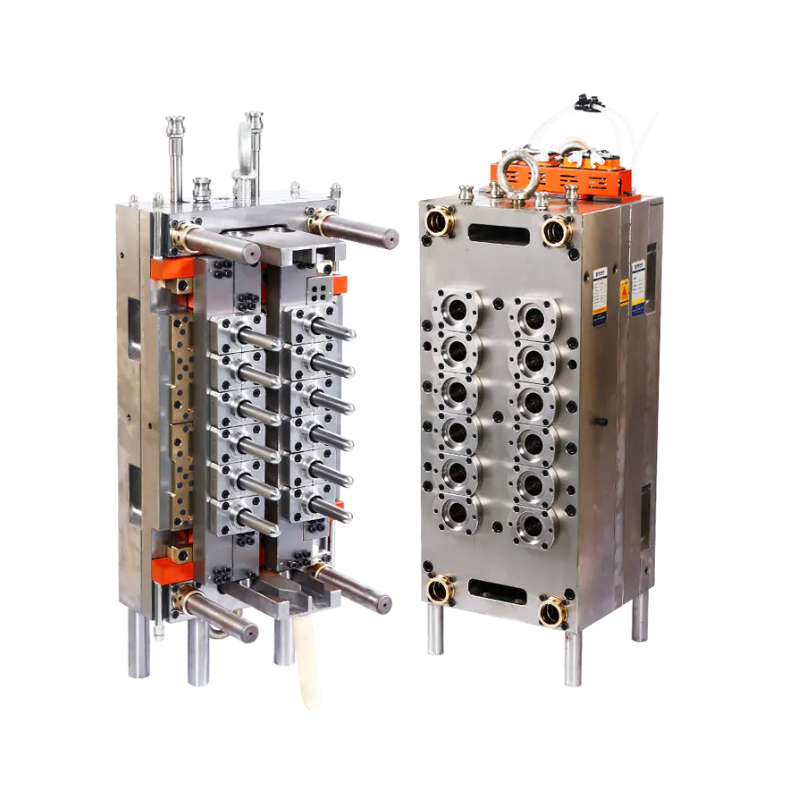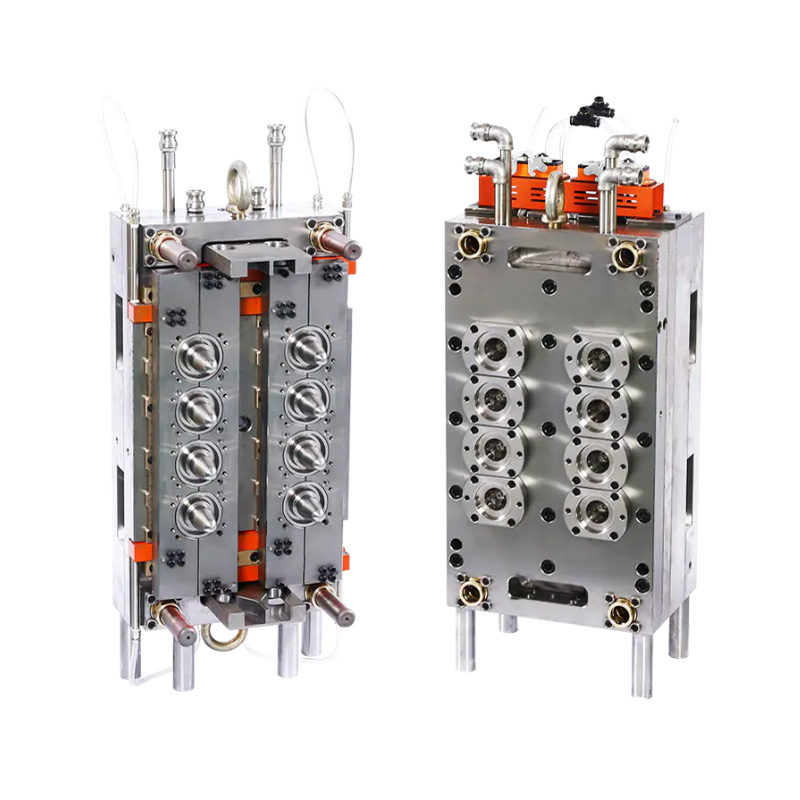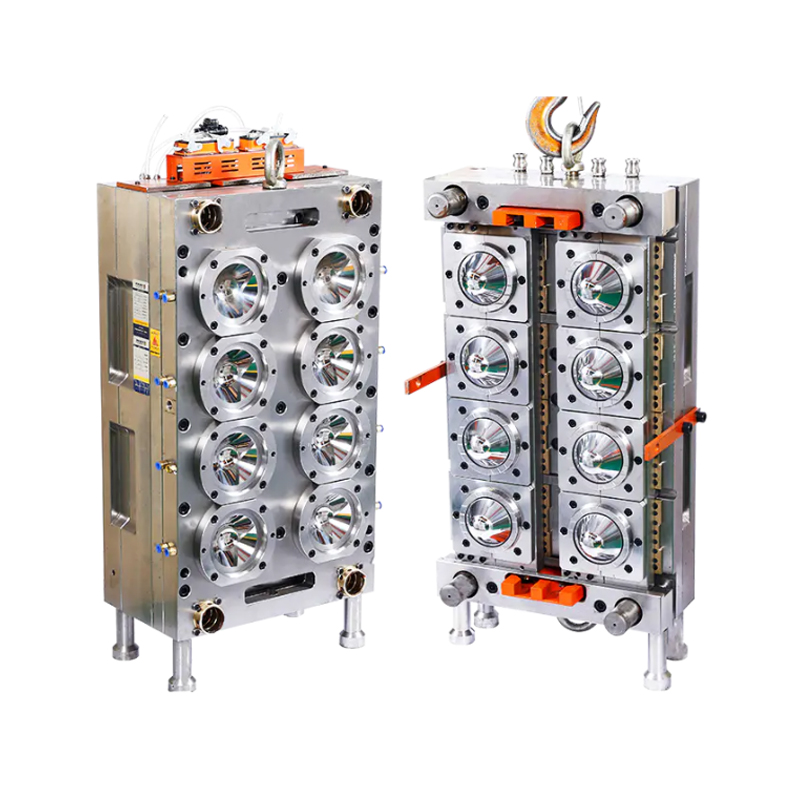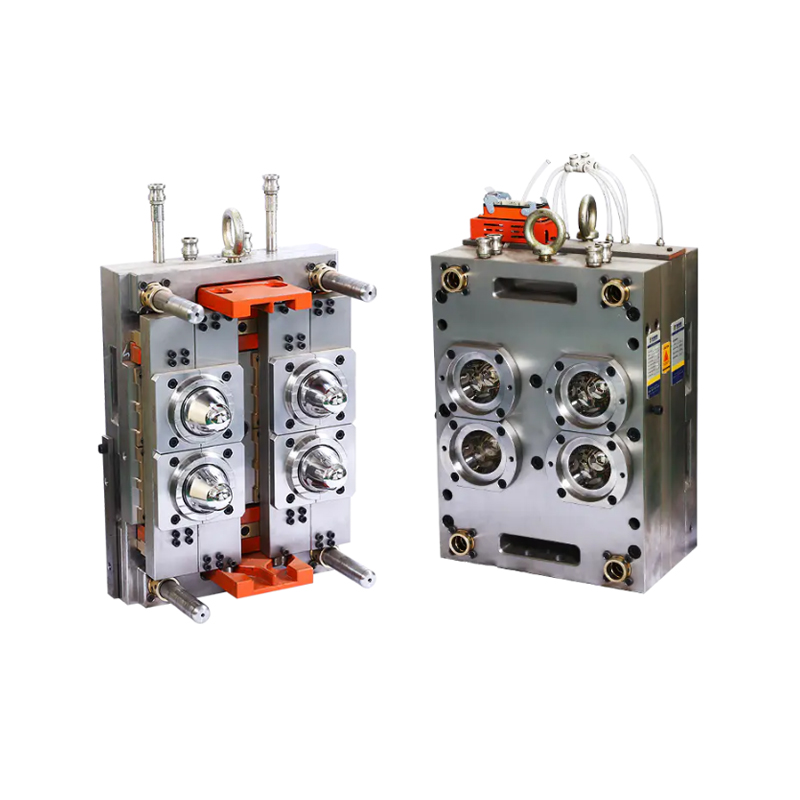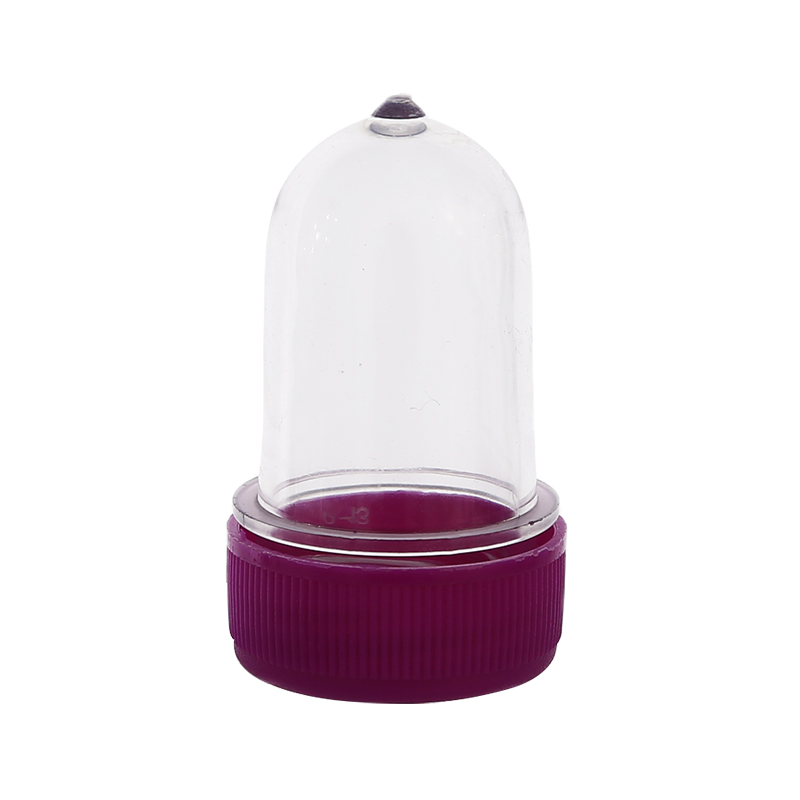A Pet Preform Mould is an essential piece of machinery used in the production of PET (Polyethylene Terephthalate) bottles.Pet preform mold is widely used in edible oil, beverage, candy, medicine and other packaging industries. The mold of bottle embryo is a method of forming the mold by injecting the molten material into the mold with the injection machine, and then placing the mold into the blow mold while it is hot, and passing the air to make the mold blow.
Advantages of Pet Preform Mould
High Precision and Consistency:
One of the primary advantages of PET preform moulds is their ability to deliver high precision in the production of preforms. These moulds are engineered to ensure that every preform is identical, which is crucial for the quality and consistency of the final bottle. The high precision minimizes variations in the weight, thickness, and shape of the preforms, leading to fewer defects and better quality control in subsequent processes.
Fast Production Cycle:
PET Preform Moulds are designed for high-speed production. This results in shorter cycle times for preform manufacturing, allowing for greater efficiency and higher output. Faster production cycles are particularly important in industries with high demand, such as beverage manufacturing, where large quantities of PET bottles are needed rapidly.
Durability and Longevity:
These moulds are made from high-quality materials, such as steel or hardened alloys, that provide durability and long service life. A well-constructed Pet Preform Mould can withstand thousands of cycles without degradation, reducing maintenance costs and improving the overall profitability of production.
Energy Efficiency:
Modern PET Preform Moulds are designed to be energy-efficient. The moulding process requires less energy than traditional plastic manufacturing methods, making it more environmentally friendly and cost-effective in the long run. With energy costs constantly rising, this is an important consideration for manufacturers.
Features of Pet Preform Mould
Multi-Cavity Design:
PET Preform Moulds are often designed with multiple cavities, allowing for the production of several preforms simultaneously. This design feature significantly increases productivity and reduces costs, making it an attractive option for high-volume manufacturers.
Interchangeable Parts:
To improve versatility, many PET preform moulds feature interchangeable parts, such as core pins and cavity inserts. This flexibility allows manufacturers to change the size or shape of the preforms based on specific needs without requiring an entirely new mould.
Cooling System:
A key feature of PET Preform Moulds is their built-in cooling system, which is vital to the rapid solidification of the preform after it has been injected. Efficient cooling systems help to minimize cycle times and maintain the quality of the preform by preventing overheating or distortion.
Ease of Maintenance:
Many modern moulds are designed with user-friendly maintenance features, such as easily replaceable components and modular designs. This reduces downtime and ensures the continuous operation of the production line.
Our PET Preform Features:
1) 100% raw PET material
2) Different necks and weights according to customers special requirements
3) Different colors can be customized.
4)Open new molds with low cost and less time
Applications of Pet Preform Mould
Beverage Industry:
The most common application of PET preform moulds is in the production of beverage bottles. These bottles, used for water, soft drinks, and juices, are lightweight, cost-effective, and highly durable, making them ideal for packaging consumables. The ability to quickly produce large numbers of uniform preforms ensures that manufacturers can meet high consumer demand efficiently.
Pharmaceuticals:
PET preform moulds are also used in the pharmaceutical industry for producing medicine bottles. PET is a highly stable material that offers an excellent barrier to air, moisture, and UV rays, which is essential for preserving the integrity of pharmaceutical products.
Cosmetics and Household Products:
From shampoos to cleaning products, PET bottles are widely used for packaging cosmetic and household items. PET’s transparency and durability make it an ideal material for products that need to be both aesthetically pleasing and functional.
Food Packaging:
In addition to beverages, PET preform moulds are used to manufacture food packaging bottles, such as those for sauces, oils, and condiments. PET offers a high level of safety for food products, preserving the flavor and integrity of the contents.
PET Preform Moulds are highly efficient, durable, and versatile tools essential for the high-speed production of PET bottles across a wide range of industries. Their precision, energy efficiency, and ability to handle high-volume production make them indispensable in modern manufacturing. By leveraging the advantages, features, and applications of these moulds, manufacturers can meet the increasing demand for quality packaging solutions in various sectors.


 英语
英语 法语
法语
